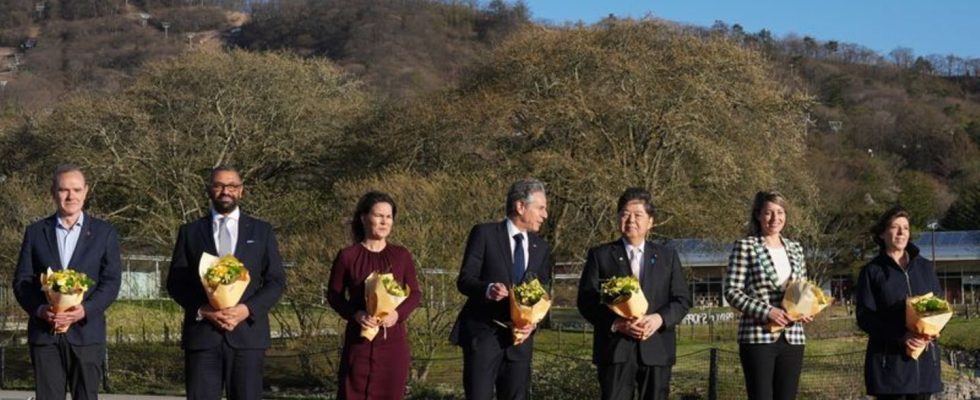meeting in Japan
Baerbock at G7: Resolutely confront Russia
The foreign ministers of the G7 have met in Japan. photo
© Soeren Stache/dpa
In view of the Russian war of aggression, the G7 are “on the go as a crisis team,” says the Foreign Minister. And announces that the group of states will “sharpen their commitment”.
Foreign Minister Annalena Baerbock arrived in Japan on Sunday for consultations in the G7 group of economically strong democracies.
Baerbock announced a clear signal from the G7 round against Russian President Vladimir Putin in view of the Russian war against Ukraine that has been going on for more than a year. “Now it’s a matter of showing Putin our determination that he will not achieve his goals through attrition and fatigue,” she said.
Baerbock: G7 are “crisis team in continuous operation”
So far, the G7 have opposed Russia’s aggression “as a continuous crisis team” one barrier after the other: with winter aid for the people in Ukraine, with the Russian sanctions and the oil price cap, said Baerbock. “With our support, Ukraine has withstood Russia’s energy war and winter offensive.” Baerbock added: “At the meeting in Japan we will sharpen our commitment.”
With her counterparts, the Green politician traveled on Sunday afternoon (local time) by Shinkansen express train from Tokyo to the conference venue Karuizawa in Nagano Prefecture, about 175 kilometers away. In addition to Germany, the G7 group also includes France, Italy, Japan, Canada, the USA and Great Britain. Japan currently holds the G7 presidency.
Since Baerbock had landed in the Japanese capital Tokyo about an hour later than planned due to delays in an appointment in Seoul and the departure from the South Korean capital, she arrived at Tokyo station just a few minutes before the special train departed.
Baerbock traveled to the G7 meeting with fresh impressions from China and South Korea: since Thursday she had first visited China and then South Korea. Here, too, the focus was on Russia’s war in the Ukraine and the associated assessment of one’s position in relation to Beijing. In view of Beijing’s continued support for Putin, the reorientation of the relationship with the increasingly aggressive Chinese government, for example in the Indo-Pacific region, is likely to play a major role.

